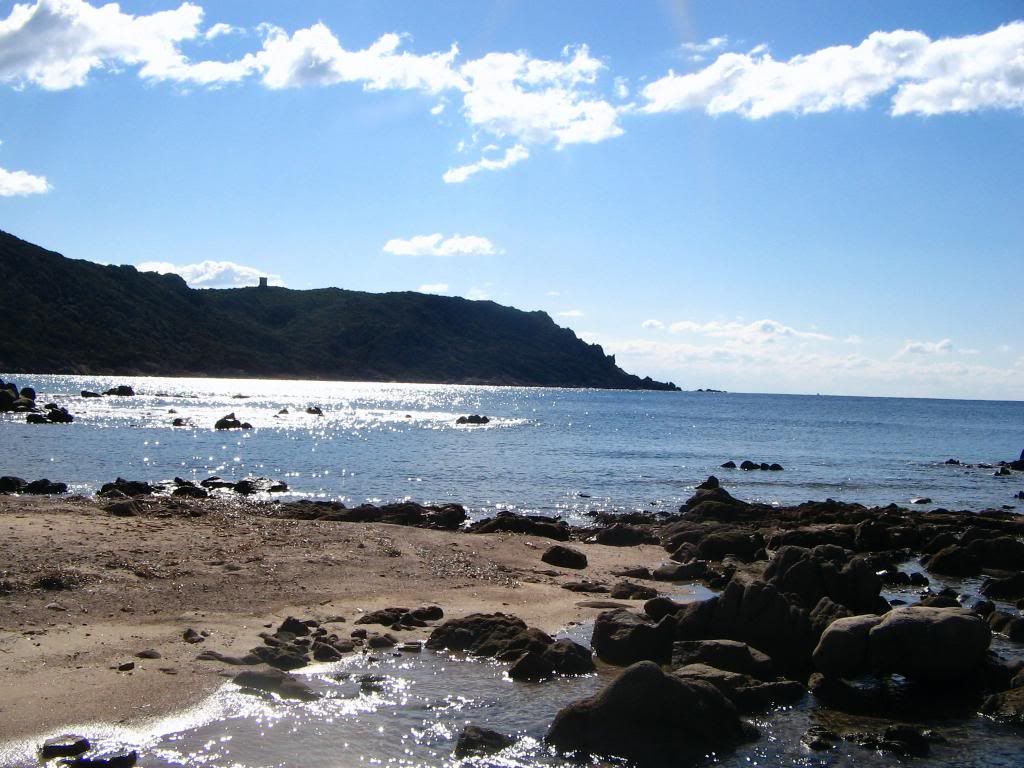
Cala d'Orzu.
The Rive Sud draws to a dramatic climax at Capo di Muro, on whose sheltered northern flank a particularly picturesque watchtower rises from a dense cover of maquis. Follow the signboards off the main road and you’ll drop down a rutted piste to a magnificent beach on the south side of the promontory called Cala d’Orzu. One of the two bar-restaurants behind it, Chez Francis, made international headlines when it was destroyed in an arson attack – not by separatist or Mafia guerrillas, as is normally the case in Corsica, but by undercover French police acting, or so it turned out, under direct orders from the state’s most senior offcial on the island.
On the night of 19 April 1999 two men in black balaclavas landed an inflatable Zodiac on Cala d’Orzu beach, on the south side of the Golfe d’Ajaccio. They carried with them incendiary devices and jerrycans of fuel, which they used to blow up a shack-restaurant (paillote) called Chez Francis, leaving behind them a note accusing its owner, Yves Feraud, of being a “cop grass”. On an island inured to such attacks, the photos of the resulting destruction might normally have made it onto page three of Corse-Matin and then been forgotten. Within days, however, police investigating the crime scene made an extraordinary revelation: articles found amid the debris on the beach (a blood-soaked jacket, an army commando knife and government-issue two-way radios) suggested this was no Mafia or militant separatist attack, but some kind of bungled police operation.
Reaction on the island quickly turned from extreme amusement to indignation and outrage. Nationalists had long claimed the State had been waging a “drity tricks” campaign and suspicion soon circled on Bonnet and his henchmen. Soon after the fire-bombing, three GPS agents were arrested. Next to be picked up, to the amazement of the national media, was their boss, Col Henri Mazares (Corsica’s chief of Police), who was promptly charged with arson.
More incriminating revelations followed as the bonfire of ‘l’affaire de la paillote’, spread upwards. Mazares eventually admitted his complicity in the attack on Chez Francis, but he also insisted he was acting under orders and could prove it. when Bonnet himself was then called in for questioning and held, the nationalist press had a field day: “Bonnets by day – balaclavas by night!” ran one Cuncolta headline.
The préfet denied any involvement to being with, mounting a brief hunger strike in his VIP Paris prison cell. But as more and more evidence came to light he changed his tune and instead accused the prime minister of masterminding his “judicial and media lynching” as a cover-up for the government’s flawed Corsica policies.
Jopin responded by sacking Bonnet, whose arrest he described as “a heavy blow to the State, the Republic, the government and to Corsica”. The scandal however continued to rear its head throughout the following year as the trials of the various agents and police officials implicated rumbled on. In the end, the disgraced préfet was given three-year prison sentence. Jopin’s credibility and that of his interior minister, took a huge knock and may well have played a significant part in the socialist government’s resounding defeat in the elections of 2002. On the island itself, thousands took to the streets calling for greater autonomy. Having dipped in the late 1990s with the upsurge of the FLNC violence and murder of Préfet Érignac, public support for the nationalists’ cause was once again on the rise.
Courtesy of
